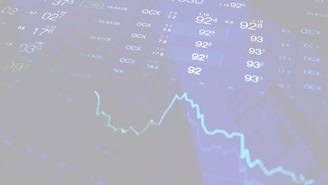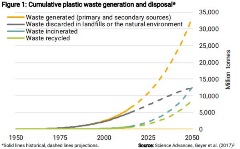Pre-engagement study on labour rights in food supply chains
Labour rights issues in food supply chains are crucial matters to investors, both in terms of compliance with international human rights norms and national legislation, and from the material point of view of securing future supplies. With this background, GES, in collaboration with AP7, The Seventh Swedish National Pension Fund, conducted a pre-study to provide input for the development of a new engagement initiative.
5G and Industry 4.0: Enabling Efficient and Resilient Infrastructure
There is significant hype associated with the rollout of 5G networks, which is largely tied to the incredible data transfer speeds 5G capable networks can offer. However, speed is only part of the equation. Beyond speed, key attributes of 5G also include lower latency, reduced cost per gigabyte and larger connection volumes. 5G, unlike previous network technology, will be software-defined, enabling networking functionality to be flexible and adaptable over time.[i] As a result, 5G is anticipated to create a new digital backbone to power future infrastructure needs – a topic we explored in Sustainalytics’ report, 10 for 2020: Creating Impact Through Thematic Investing.
Responding to COVID-19 through Social Bonds
In the space of four months since the first cases of COVID-19 were diagnosed in Wuhan, China, the virus has spread to 178 countries globally. As a consequence, nearly 3 billion people around the world are living with varying degrees of lockdown imposed by governments aiming to slow the spread of the contagion.
ESG Risk Ratings and the Corporate Perspective
In this webinar, Sustainalytics’ Sustainable Finance Solutions team shared insights from our recently published Sustainable Finance Guide. They also discussed our ESG Risk Ratings, how it is being utilized for sustainable finance and beyond, and how companies are leveraging their ESG Ratings for capital raising activities, marketing and communications efforts and internal benchmarking processes.
Coronavirus: Flattening the Misinformation Curve
In February 2020, the WHO Director-General Tedros Ghebreyesus said misinformation about COVID-19 is just as dangerous as the virus itself. “We are not just fighting an epidemic; we are fighting an ‘infodemic.’ Fake news spreads faster and more easily than the virus and is just as dangerous.”[i]
EU Sustainable Finance Action Plan: Final Taxonomy Report Published and Other Developments
The highly anticipated final report by the TEG (Technical Expert Group) on the EU Taxonomy was published in early March, followed by a stakeholder information session. You can read our blog post on last fall’s developments here.
Coal Investments: Up in Smoke?
Growing public concern over climate change is pushing investors to increasingly assess how their portfolios are pivoting to a low carbon economy. Because of its large carbon footprint, the coal industry is a prime target of environmental activism and divestment campaigns, and it is becoming the investable hot potato few want to hold.
German Corporate Governance Standards Overhauled
The legal and regulatory foundations of Germany’s corporate governance system are being overhauled in the form of far-reaching changes to the German Stock Corporations Act (AktG) and the German Corporate Governance Code (Kodex). As a result, institutional investors should expect enhanced transparency from German issuers, as well as stronger rights enabling them to effectively exercise their stewardship responsibilities. The reform reflects both the transposition of the EU Shareholder Rights Directive II (SRD II) into domestic law and a corresponding Kodex revamp, both aiming to incorporate governance features that are more typically associated with Anglophone jurisdictions.
The ESG Risk Ratings: Potential Applications for Investors
With our third ESG Risk Ratings white paper, we explore how investors could potentially apply the ESG Risk Ratings to their investment processes. Below are some key takeaways from the white paper. To learn more, register for our regional webinar using the buttons at the bottom of the page.
The ESG Risk Ratings: Moving Up the Innovation Curve
To provide our clients with a better understanding of the ESG Risk Ratings, we published a series of white papers, the first of which presents a brief history of responsible investment and covers the motivations for developing a next generation ESG rating.
10 for 2019: Systemic Risks Loom Large
In 10 for 2019: Systemic Risks Loom Large, we offer a forward-looking view of significant ESG issues that could affect global investment portfolios in 2019. Applying Sustainalytics’ ESG Risk Ratings framework, we identify a selection of subindustries with high levels of unmanaged risk and profile 10 firms with leading ESG management practices and low levels of unmanaged ESG risk.
EU Action Plan Guidance Document
The proposed Taxonomy is a classification tool to help investors and companies make informed investment decisions on environmentally friendly economic activities. It is a list of economic activities, which defines performance criteria for six environmental objectives.
The ESG Risk Ratings: Exploring the Internet Software and Services Subindustry
In the second installment of our ESG Risk Ratings white paper series, we assess the unmanaged ESG risk of 42 Internet Software and Services (ISS) companies. In addition, the report offers a comprehensive ESG risk analysis of the subindustry and concludes with a case study of Facebook.
.tmb-small.png?Culture=en&sfvrsn=2b395014_2)


















